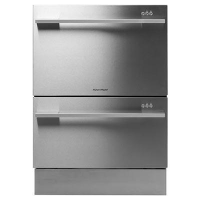FAST ON-SITE SAMSUNG DISHWASHER REPAIRS AT AFFORDABLE PRICE
 Better Appliance Care is a leading Samsung dishwasher repairs company that provides services across Gauteng Province. We specialise in the repair of dishwashers, all brands and models.We offer the following services:
Better Appliance Care is a leading Samsung dishwasher repairs company that provides services across Gauteng Province. We specialise in the repair of dishwashers, all brands and models.We offer the following services:
We offer the following services:
- Built in under counter (traditional) Samsung dishwasher repairs
- Compact Samsung dishwasher repairs
- Free-standing Samsung dishwasher repairs
- Drawer Samsung dishwasher repairs
- Portable free-standing Samsung dishwasher repairs
- Countertop Samsung dishwasher repairs
We repair all major dishwasher brands and models, such as:
Whirlpool – Smeg – Scotsman – Samsung – Miele – LG – Kelvinator – Indesit – Gaggenau – Defy – Bosch – AEG and others.
DISHWASHER REPAIR TIPS
Dishwasher is the type of appliance that is easy to operate and repair when compared to any other type of appliances that has a complicated mechanism. But whenever it develops a major technical fault, you need to reach out to the professionals in the field that can repair it for you. Stated below are some of the visible problems that can arise in dishwasher which could call for repair:
1. When dishwasher is not working or malfunctioning and there is panic, what you need to do is to first confirm if the dishwasher is connected, study the manual
that came with it and carry out a research concerning it on the internet. You can even unplug and use voltmeter to check if it is working. Ensure that the meter is
set to R x 100 if the float is down and make sure it reads zero.
2. Apart from the first step, first connect the dishwasher plug to the electrical outlet. Secondly, ensure that there is power supply in the electrical outlet. You can
do this by connecting other type of appliance such as electrical mixer to the electrical outlet to confirm.
3. In case there is power in the electrical outlet and the dishwasher still refuse to work, then check the dishwasher wiring if there is burn spots or breaks and if the
source has no power, examine the electrical panel to confirm that the breaker is on and also check if the fuse is not blown. If it is an electric problem, it will be
better to call the electrician to fix the problem.
4. Going through the manual of the dishwasher, you will discover the solutions to the problem such as noise, when water is stored at the bottom part of the
tub, when the water is not pumping out, if the dishes are not drying or if the dishes are not getting clean or if there is problem with the soap dispenser. In the
dishwasher manual, you will see different ways by which you can tackle these problems without bothering yourself in reaching out to the technicians.
5. In case there is problem of inadequate water or there is no water, then check the water valve to the dishwasher and ensure that it is turned on and filled with
water.
6. Apart from the manual that came with the dishwasher when bought, you can search for any similar problem from the internet and solve it by yourself without
the help of the technicians. When it gets to this level, the dishwasher must be dismantled in order to resolve the problem. If it is a simple problem, then it will
need repair but in case it is complex, there will be need to take the dishwasher from its present area to the place or factory where it will be worked upon.
As soon as the problem has been discovered, then the part that needs to be replaced must be ordered. Which means it will require payment and waiting for the part to arrive.
As soon as the part arrived, then all the manual that came with the dishwasher will be gathered in order to provide motivation and advice, even though, it might not be exciting or interesting experience for those people that are starting it for the first time.
An expert in dishwasher repair must have fundamental tools and advance tools in addition to the knowledge of repairing within a short period of time. Some times, no
cash will be spent until the dishwasher is effective again. If you apply DIY and it is successful, then repairing a dish washer is a profitable business to entertain.